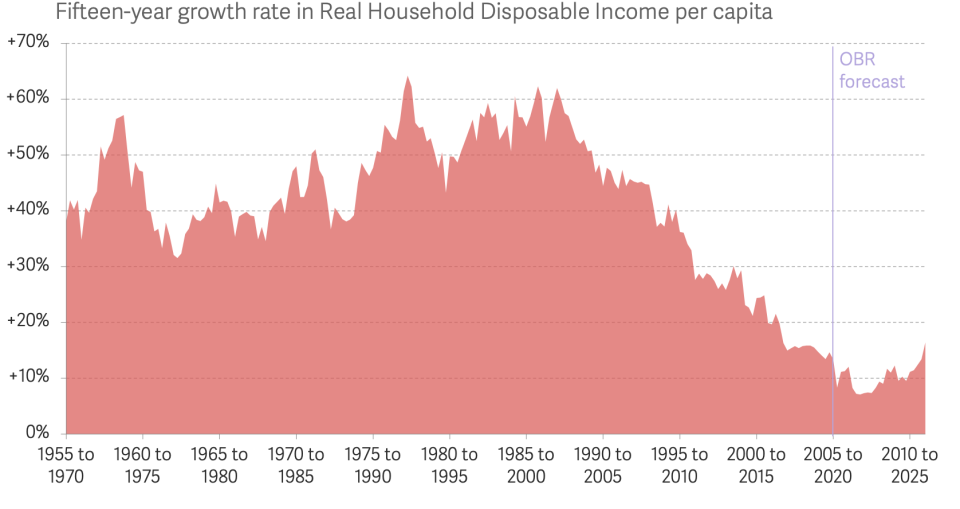COVID-19 could cut average UK pay by £1,200 a year by 2025
The coronavirus crisis is set to leave average UK wages £1,200 a year lower than pre-virus forecasts.
Think tank Resolution Foundation predicts higher unemployment and weaker pay growth to “prolong Britain’s 15-year squeeze on household incomes.”
It expects average incomes to be just 10% higher in the middle of the next decade than at the start of the global financial crisis in 2008.
Pay levels took a significant hit after the last crisis, before stagnating and beginning to recover only in the late 2010s.
READ MORE: Minimum wage hike for two million workers but public sector pay freeze confirmed
The pay squeeze comes in mark contrast to past trends, with household incomes rising by 40% in the 15 years prior to 2008.
The think tank criticised the chancellor for not raising benefits in his spending review on Thursday amid bleak new economic forecasts from the Office for Budgetary Responsibility (OBR).
British GDP is expected to decline by 11.3% this year, with unemployment likely to hit 2.6 million next year and not return to pre-pandemic lows until at least 2025.

The Resolution Foundation says pay has recovered in the second half of this year after a sharp fall in the first half as lockdown hit. But it expects unemployment to spike in the second quarter of next year, denting incomes, and warns: “ In the longer term, a smaller economy will have a lasting impact on incomes.”
Household disposable income per head is likely to be 2.7% lower than the OBR expected even earlier this year. The past decade-and-a-half has already been the worst on record for real household disposable incomes.
“Against that backdrop, it makes no sense for the chancellor to have failed to extend the £20 a week boost to universal credit into next year, leaving 6 million households wondering if they are set to lose over £1,000 a year just at the time when the OBR expects unemployment to reach its peak,” said the foundation in its latest report, ‘Here today, gone tomorrow.’
The think tank also noted a planned 19p-an-hour rise in the National Living Wage is “modest” and the smallest rise since 2013. It said the government was right to sustain its commitment to “end low pay” by 2024, but acknowledged fears over employers’ ability to cope with higher minimum wages.
Watch: What do Rishi Sunak's announcements mean for you and the UK?


